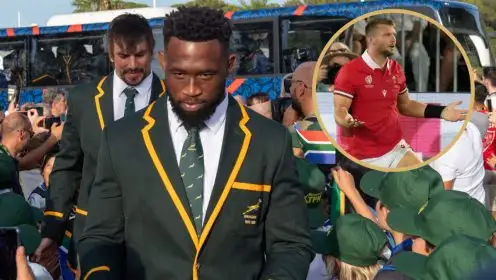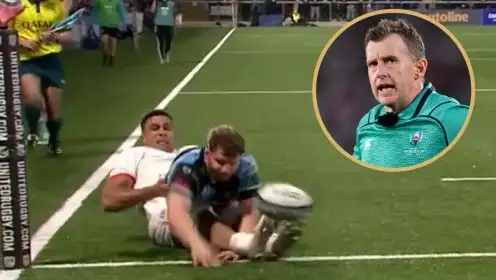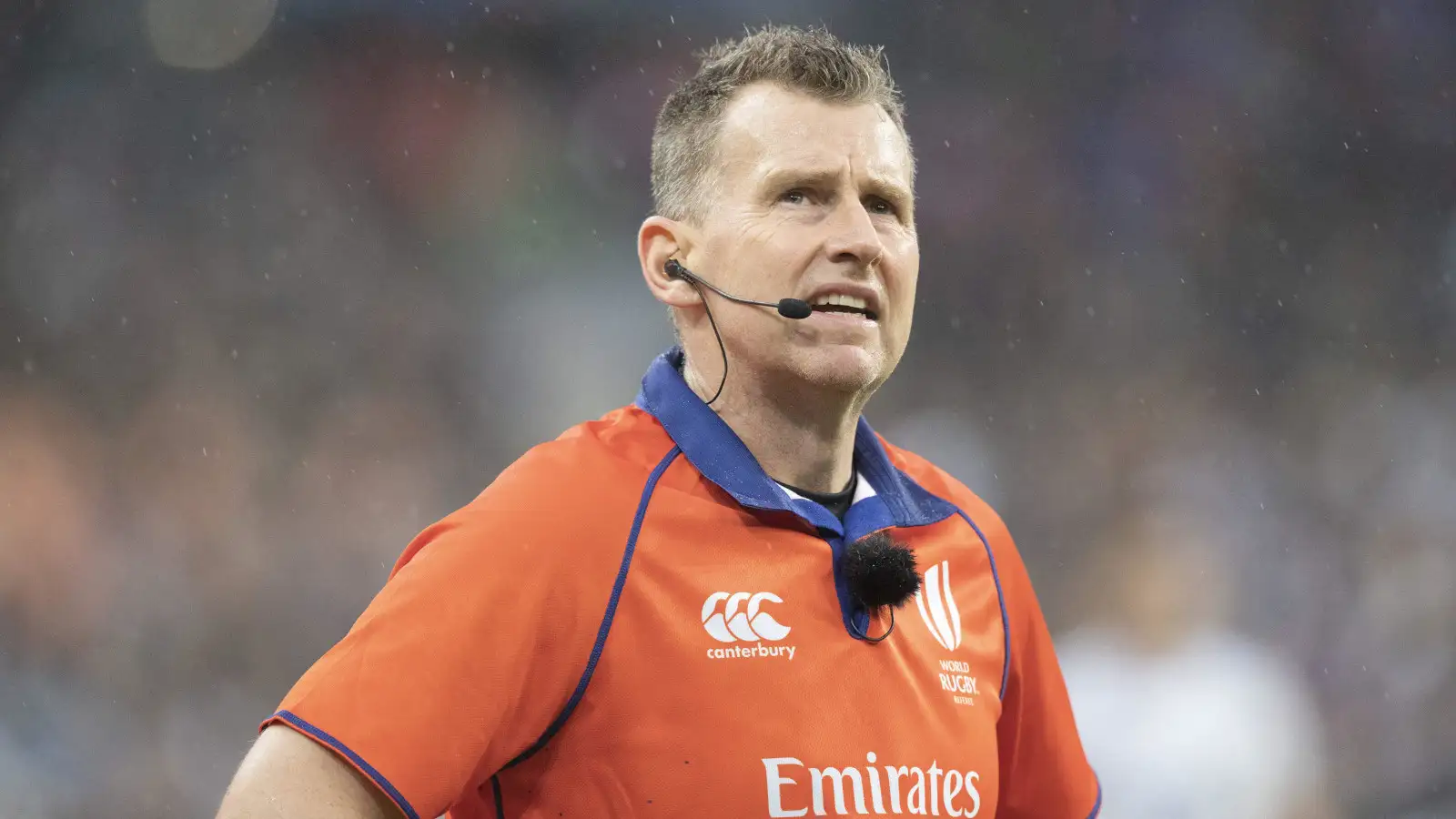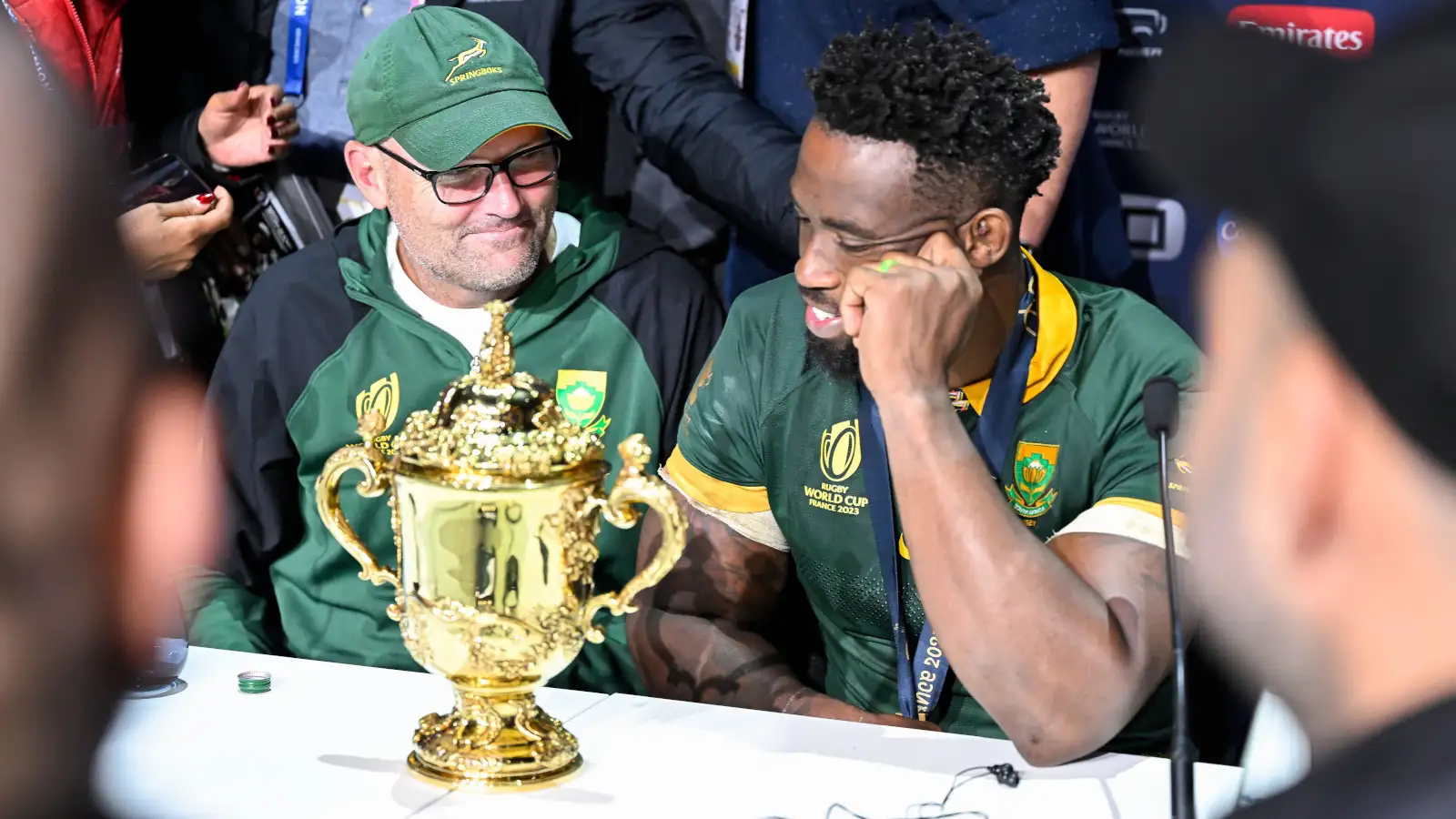‘Very, very lucky’ – Nigel Owens’ verdict on referee calls for Springboks in win over France
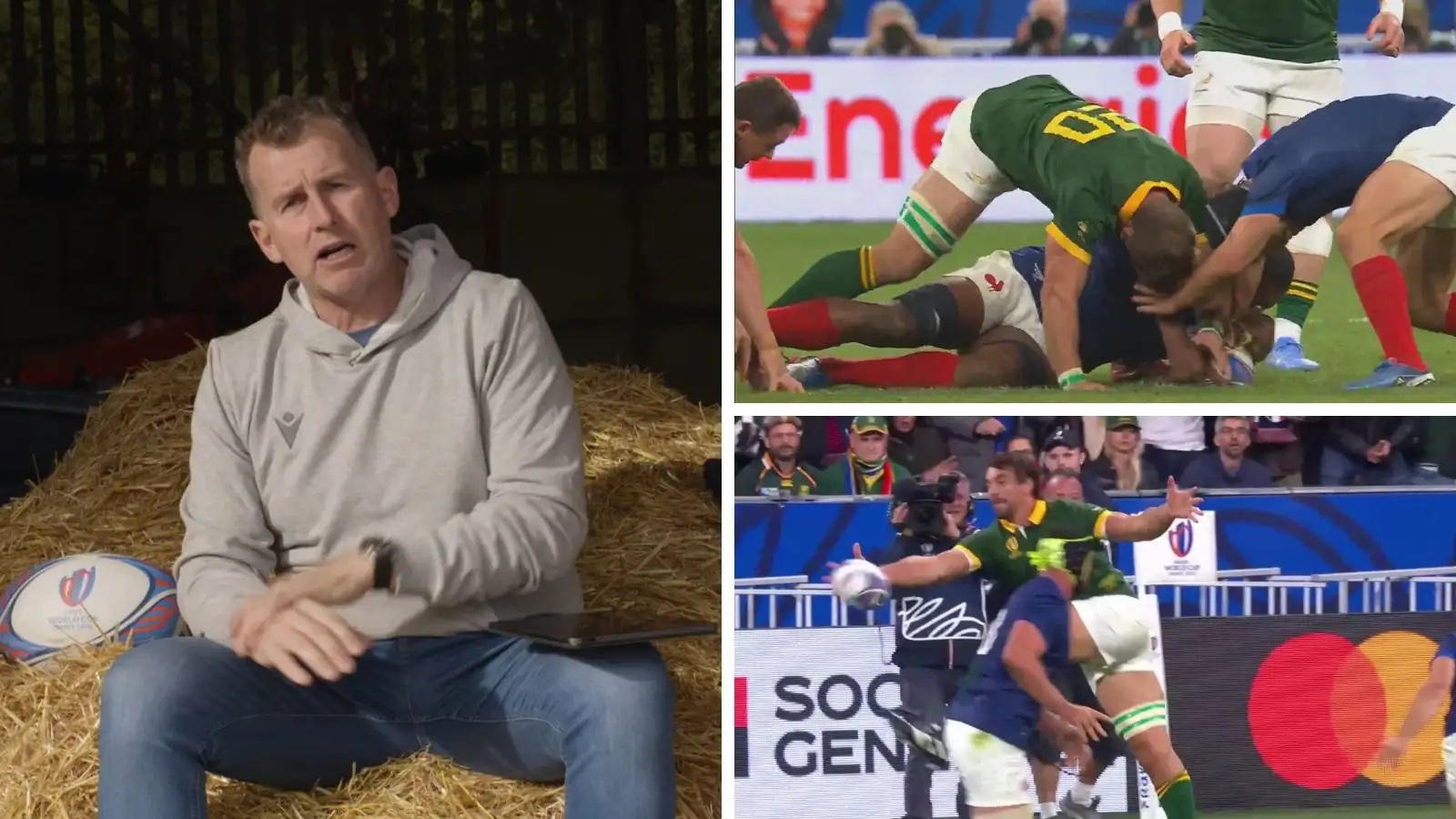
Nigel Owens and Springboks Kwagga Smith and Eben Etzebeth.
Former international referee Nigel Owens has commented on the contentious decisions in the Rugby World Cup quarter-final between France and South Africa.
In his latest video with World Rugby, Owens looked back at the weekend’s quarter-final action in the World Cup, analysing several decisions.
Eben Etzebeth’s slap back
He focused on two particular incidents from the Springboks, Eben Etzebeth’s try-saving intervention and Kwagga Smith’s turnover, two decisions that played a significant role in the outcome of the match.
After speaking about the deliberate knock-ons from the All Blacks and England, Owens isolated the Etzebeth intervention, explaining that the difference is that the Springbok lock knocks the ball backwards.
“We haven’t put this one under the deliberate knock-on category because although Etzebeth’s actions in that great game in Paris between France and South Africa, he is very, very lucky because he goes with one hand out,” Owens explained on World Rugby’s Whistle Watch.
“There’s no way now he’s going to catch this ball, so what he tries to do is knock the ball backwards, which is legal, as long as you knock the ball backwards.
“If he’d have made contact with that ball and that ball had gone forward, then it would have been a deliberate knock-on and a pretty certain yellow card as well.”
He added: “There’s a lot of debate about this; some of you are saying, ‘Well, I think it’s gone forward,’ and some of you saying, ‘No, I think it’s gone backwards’.
“And it really is a very, very difficult one; it’s impossible to see 100%, to put your house on it, has it forward or has it gone back.
“So the referee looks at this, and I have to say, I tend to agree with the referee here because it’s very difficult to say that it’s gone forward or gone back so the referee’s view, and the TMO’s view, is that the ball went backwards or certainly didn’t go clearly forward and therefore we have a play on.
“But remember, he’s very, very lucky if that goes forward, it’s a pretty certain penalty and yellow card.”
Kwagga Smith’s penalty
Another hotly debated call was the penalty that Smith won at the breakdown, which Handre Pollard converted to give the Springboks the lead.
Commenting on this, Owens first clarified that it is not a penalty if a player puts his hand on the ground at the breakdown.
“Nothing in the law says that you can’t put your hands on the ground,” Owens explained.
“So we can’t say that any player that puts his hand on the ground is committing an offence because it doesn’t say that in the law.
“So, the way that the referees will deal with this is the law of the contact tackle area, so if you come in to jackal the ball, what the jackler must do, he must release the ball carrier before he regathers on the ball or if he’s not in contact with the ball carrier when he comes in, he must maintain his own body weight.
“So what he can’t do is put his hands away or beyond the ball to support his body weight and then come on to the ball to gather it.
“Now, if he comes in and tries to go for the ball, but in doing so, because of the speed, his hand touches the ground around the ball, but that is not keeping his weight up, which means he’s supporting his own body weight, then we won’t necessarily penalise the hand touching the ground.
“We’d only penalise it if the hands are too far or he’s using the ground to support his body weight.
“So that’s what the referee decides, the referee needs to decide was that hand supporting the body weight before he goes onto the ball?
“And if so, it would be a penalty if he feels well; he just touched the ground around the ball, and it’s not supporting his body weight, then we’d have a play on.”
READ MORE: Romain Poite weighs in on hotly debated Eben Etzebeth try saver against France
